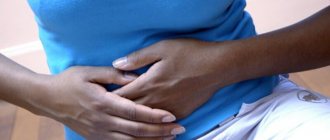Views: 4254
Seaside resorts are an excellent place for the reproduction and active life of various pathogenic microbes and bacteria that prefer moisture and a warm climate. That is why quite often, after swimming in the sea, children develop diarrhea, nausea, vomiting and intestinal disorders. The summer months are the peak of intestinal infections, which affect not only adults, but also children of all ages.
In addition to various pathological factors, poisoning, vomiting can occur in case of motion sickness, as well as seasickness in a child. When vomiting at sea develops, the child experiences parallel painful symptoms such as: diarrhea, pain in the gastrointestinal tract, pulse fluctuations, sticky sweat and general malaise, lethargy and severe weakness.
However, if you want your seaside vacation to remain a pleasant memory, then you must follow the recommendations and instructions of the sanitary doctor, which will allow you to maintain your health. Poisoning that occurs at sea is a fairly common and widespread case that affects many children and adults. This disease is accompanied by the following main symptoms: diarrhea, nausea and vomiting, sometimes fever, chills, weakness and drowsiness.
If a child has weak immunity and a predisposition to diseases, then various hypothermia or climate changes, as well as nutrition and daily routine, are a huge stress for the weakened body, which leads to increased susceptibility to pathogenic elements. Also read here about a remedy for vomiting in a child.
Causes of vomiting at sea
Vomiting and fever in a child at sea can occur unexpectedly. It would seem that in the morning the baby felt well, but by lunchtime the first symptoms of illness were already making themselves felt. Parents, first of all, need to find out the reason for the child’s poor health. They may be as follows:
- Acclimatization. For some reason, she is the last thing parents think about. But it’s hard for children to get used to new climatic conditions, and this is how the body adapts to changes. Therefore, most pediatricians assure that you should not go on vacation with your baby for less than 14 days. There will be no benefit from the trip, but the whole family will be stressed.
- Poisoning. A fairly popular reason is that the food that the child is accustomed to is replaced by exotic dishes and national cuisine. In addition, the diet is disrupted. On vacation, parents allow their child foods that are prohibited at home: carbonated drinks, candy, popcorn and other sweets. The stomach, which has not encountered such food before, is simply unable to digest it. Very often, it is for this reason that a child experiences vomiting and diarrhea at sea.
- Heatstroke or sunstroke. It mainly happens to children who are forgotten to wear panama hats. Thermoregulation is disrupted, the body reacts to this with fainting, headache, increased body temperature, and vomiting. Remember: in this condition, diarrhea cannot occur. To prevent heat stroke, you need to put on a hat for your baby, use sunscreen, periodically swim in the sea or pool, do not go outside during the hours of the most active sun (from 11.00 to 15.00), and avoid dehydration.
- E. coli or infection. Very often, children, while swimming, can catch an infection in the water. Rotovirus is a fairly common disease in children at resorts. In this case, you need to consult a doctor, especially if the child is very small. The main rule is to prevent dehydration.
Vomiting in a child at sea can occur precisely for the reasons described above. It is better to consult a doctor at the first signs of discomfort.
When medical intervention is not needed
How to teach a child to drink from a straw and when to do it
A one-time episode does not always require medical intervention. If this symptom is regularly observed in an infant, this condition can be very dangerous for him. A child is much more sensitive to all negative health phenomena, and also loses water much faster than an adult. Therefore, if vomiting occurs in an infant under one year of age, you should immediately consult a doctor. If a child drinks water and vomits, you need to call a doctor at home.
Stages of acclimatization
Vomiting and fever in a child at sea may be associated with acclimatization. It consists of several stages:
- Initial stage. Occurs in the first 24 hours after a change in climatic conditions. During this period, the baby behaves as usual.
- Manifestation of reaction. Doctors call this period the most difficult; at this time the body begins to react to the changes taking place. Vomiting, fever, general malaise, drowsiness, and headaches may occur. Symptoms disappear within 2-3 days.
- Partial addiction. The body adapts to new climatic conditions.
- If the trip lasts more than a month, a stage of complete acclimatization occurs.
Parents need to know the stages described above in order to understand how long it will take for the child to feel completely healthy.
Temperature after hypothermia in a child
Hypothermia in children is divided clinically into four stages:
- the temperature in the rectum drops to 35 degrees - chills occur. A child in this state experiences chills, his skin turns pale and becomes covered with pimples (goose bumps), tachycardia, cyanosis of the lips are observed, blood pressure, mental and motor agitation increases;
- body temperature in the rectum drops to 30-35 degrees - the child becomes lethargic, muscle tremors, tachycardia, shortness of breath appear, blood pressure decreases;
- cooling occurs to 28-30 degrees - respiratory depression occurs, the child falls into a coma, his blood circulation slows down, and muscle stiffness occurs;
- when cooled to 26-28 degrees, it causes local icing and clinical death due to ventricular fibrillation. The time of clinical death can be significantly extended for an indefinite period. There are cases of successful resuscitation an hour after circulatory arrest.
If, after hypothermia, a child experiences an increase in temperature, a urine test should be taken, since inflammation of the urinary tract is possible.
Hypothermia of an infant
If you suspect hypothermia in an infant, you should return home as soon as possible, or (if it is far from home) go to the nearest warm room. Along the way you can jump and shake the baby merrily. You can walk for a while with the child’s head tilted forward - in this position there is a rush of blood to it. When entering a warm room, you should quickly remove the child’s clothes. If he sweats, you need to carefully wipe his skin dry and change his clothes. You should give him a hot drink. If, while at home, the child not only warmed up, but also managed to sweat, you should not calm down ahead of time, since he may cool down again. You can relax only after the child has been wiped dry and has already changed into warm, pre-warmed clothes. Now the child is completely safe.
Can vomiting occur during acclimatization?
Many parents are interested in whether a child may start vomiting at sea due to acclimatization. In order to answer this question, it is necessary to find out the characteristic symptoms of this phenomenon:
- general weakness, dizziness, sleep disturbance;
- headache;
- refusal to eat;
- nausea, vomiting;
- elevated body temperature.
These symptoms can be confused with poisoning or heatstroke. But if they are observed 2-3 days after arrival at the sea and pass within a day, we can safely state the fact that the child’s body reacted this way to the new climatic conditions.
Symptoms of hypothermia in a child
General freezing may be possible due to poor nutrition of the child, general fatigue of the child’s body. A child's body becomes hypothermic most quickly in water or wet clothes.
As a result of hypothermia, the child’s skin becomes pale, trembling appears throughout the body, the heartbeat becomes frequent and breathing also increases. If measures are not taken in time to warm the child, in the future his body temperature will drop significantly, he will become drowsy, after which his pulse will become rarer, blood pressure will drop and the child may lose consciousness.
It is extremely important to properly warm children affected by hypothermia, due to the fact that if this procedure is carried out incorrectly, death from too much hypothermia is possible. There is ample evidence that warming up hypothermic children too much has had disastrous consequences. In this case, cold blood coming from the peripheral areas of the body mixed with warm blood coming from the internal organs, resulting in a drop in the temperature of the core of the body below a critical threshold. The consequence of this trend can be life-threatening failure of internal organs.
Increased heat loss occurs when exposed to rain, wind, water and high humidity of the surrounding air, due to the fact that water removes heat tens of times faster than air.
How to best deal with it
Is it possible to prevent or reduce acclimatization for a child? Leading pediatricians claim that this is an individual characteristic of a person, so it cannot be avoided. But you can prepare your child. To do this you need:
- A few days before the trip, consult a doctor and purchase medications.
- Try to make the trip as comfortable as possible for the baby.
- Don't put any physical strain on him.
- If you have the opportunity to choose a vehicle, it is better to give preference to a train or a car. Air travel is bad for children. This is explained by the fact that there is a sharp change in climate due to the enormous speed of the aircraft. It is also better to avoid traveling by water, as the child may become seasick.
There is nothing wrong with acclimatization; as a rule, within a day the child feels well again.
Reviews from parents
Daria, 25 years old, Rostov
When my two-year-old baby started feeling nauseous, I didn’t immediately realize that it was because he had swallowed a button. We only figured it out at the children's clinic.
I think in a state of panic it is always better to immediately seek help from a doctor.
Marina, 30 years old, Saratov
When my five-year-old baby gets sick and vomits, I always give him an activated charcoal tablet, just in case.
Susanna, 28 years old, Shakhty
Herbal teas - chamomile or mint - help relieve my son's nausea.
And still poisoning. First aid
If a child starts vomiting at sea, remember a few important rules:
- Do not overload your stomach with fatty, heavy foods; offer only easily digestible foods;
- give your child as much fluid as possible;
- if you are sure that this is poisoning, rinse your stomach;
- Follow the diet for several days.
Remember: if a child begins to vomit severely at sea, treatment must be followed immediately to prevent dehydration.
What medications should you take?
If a child starts vomiting and diarrhea at sea, these are the first signs of food poisoning. It is necessary to take measures to remove intoxication from the body and improve the baby’s condition. In this case, doctors suggest using the following medications:
- Sorbents. Activated carbon works well.
- Anti-dehydration medications. If there are none, ordinary mineral water without gas will do.
- Any antiviral agents.
- Medicines that stop vomiting and diarrhea, for example Smecta.
In addition to these medications, if the child has a fever, it is necessary to give an antipyretic drug.
Overview of required medications
When going on vacation, be sure to take with you a first aid kit containing the following contents:
- Antihistamines: Claritin, Suprastin, Zodak, Fenistil.
- Antitussives.
- Anti-diarrhea and vomiting medications: Smecta, Filtrum.
- Sorbent substances: Polysorb, white or black coal, Enterosgel.
- Antipyretics: Nurofen, Paracetamol, Ibuklin.
- Rehydration preparations: Regidron solution.
- Plaster, antibacterial solutions.
- Homeopathy: herbs chamomile, calendula, etc.
What information is missing from the article?
- Methods for eliminating vomiting in children
- Doctors' opinion
- Medicine Reviews
- Traditional recipes for vomiting
Prevention of poisoning at the resort
Vomiting in a child at sea is an unpleasant phenomenon that can occur as a result of food poisoning. In order not to spoil your holiday, you need to follow preventive measures:
- Eat only fresh products, pay attention to production dates.
- Follow the rules of hygiene, if it is not possible to wash your hands on time, use wet wipes and special antibacterial agents.
- Wear a headdress.
- Try to eat in one place.
- Wash vegetables and fruits thoroughly.
- It is better to drink bottled water.
These simple rules will help you and your child avoid food poisoning at the resort.











